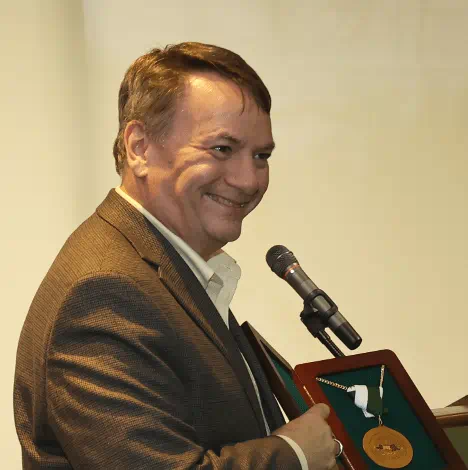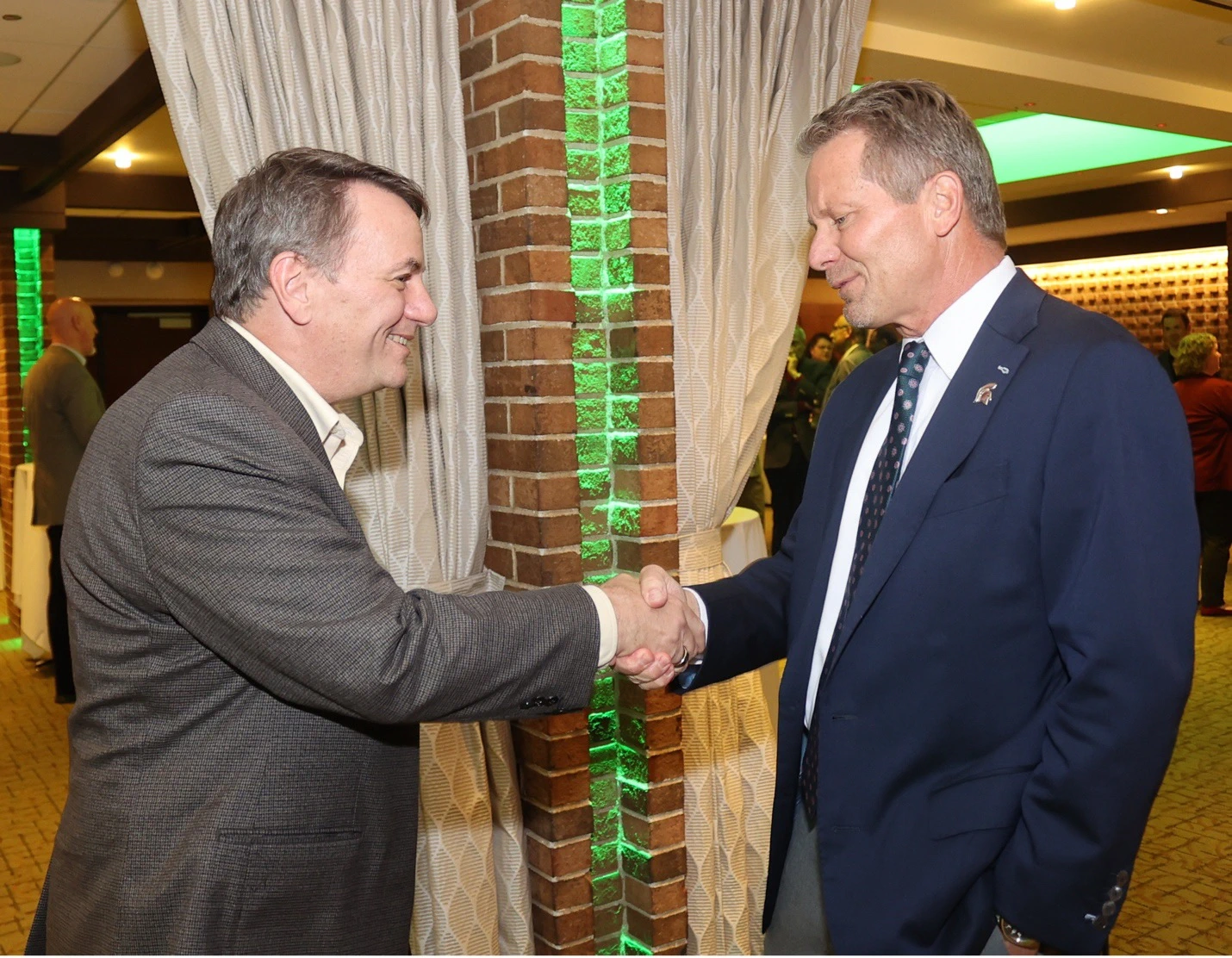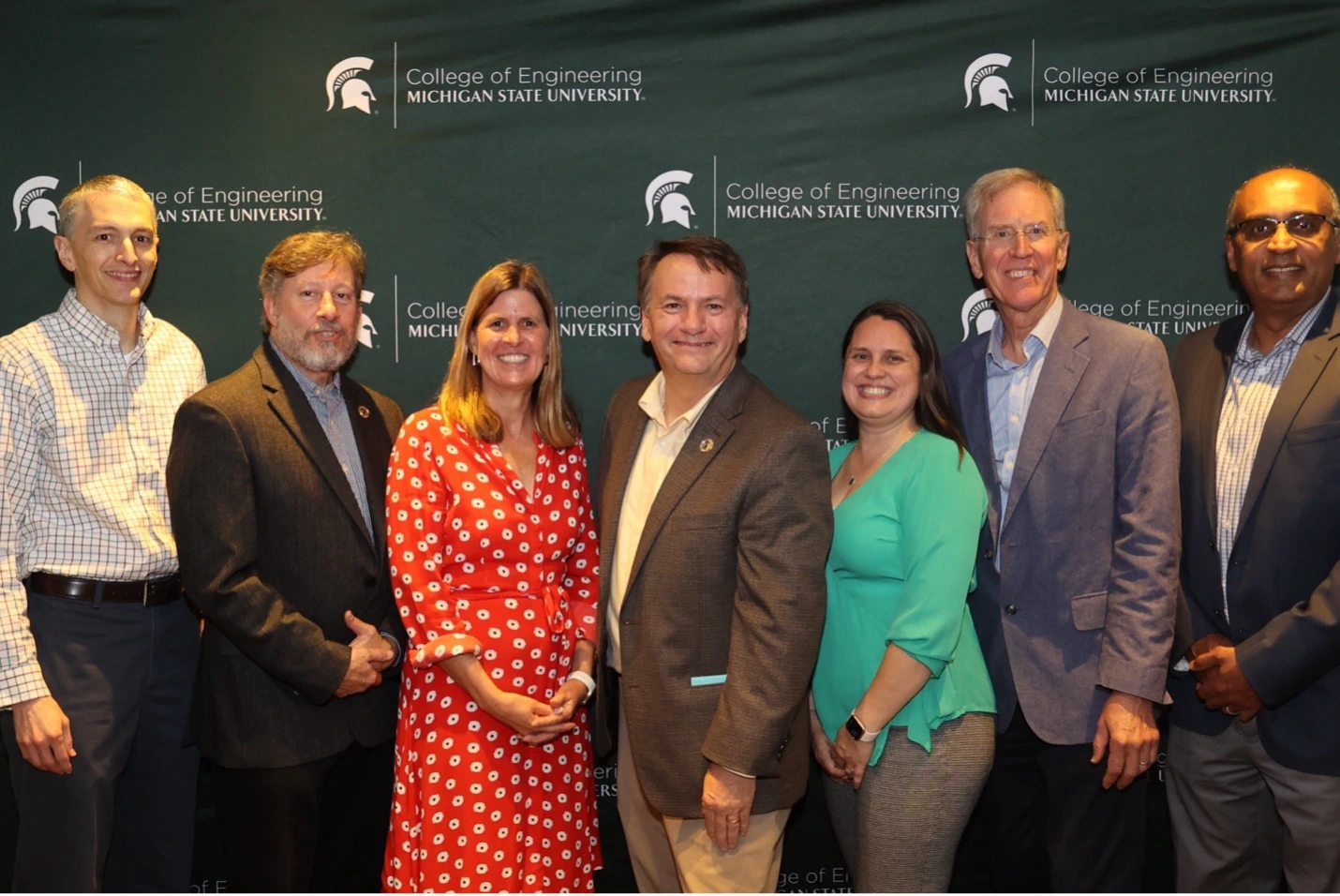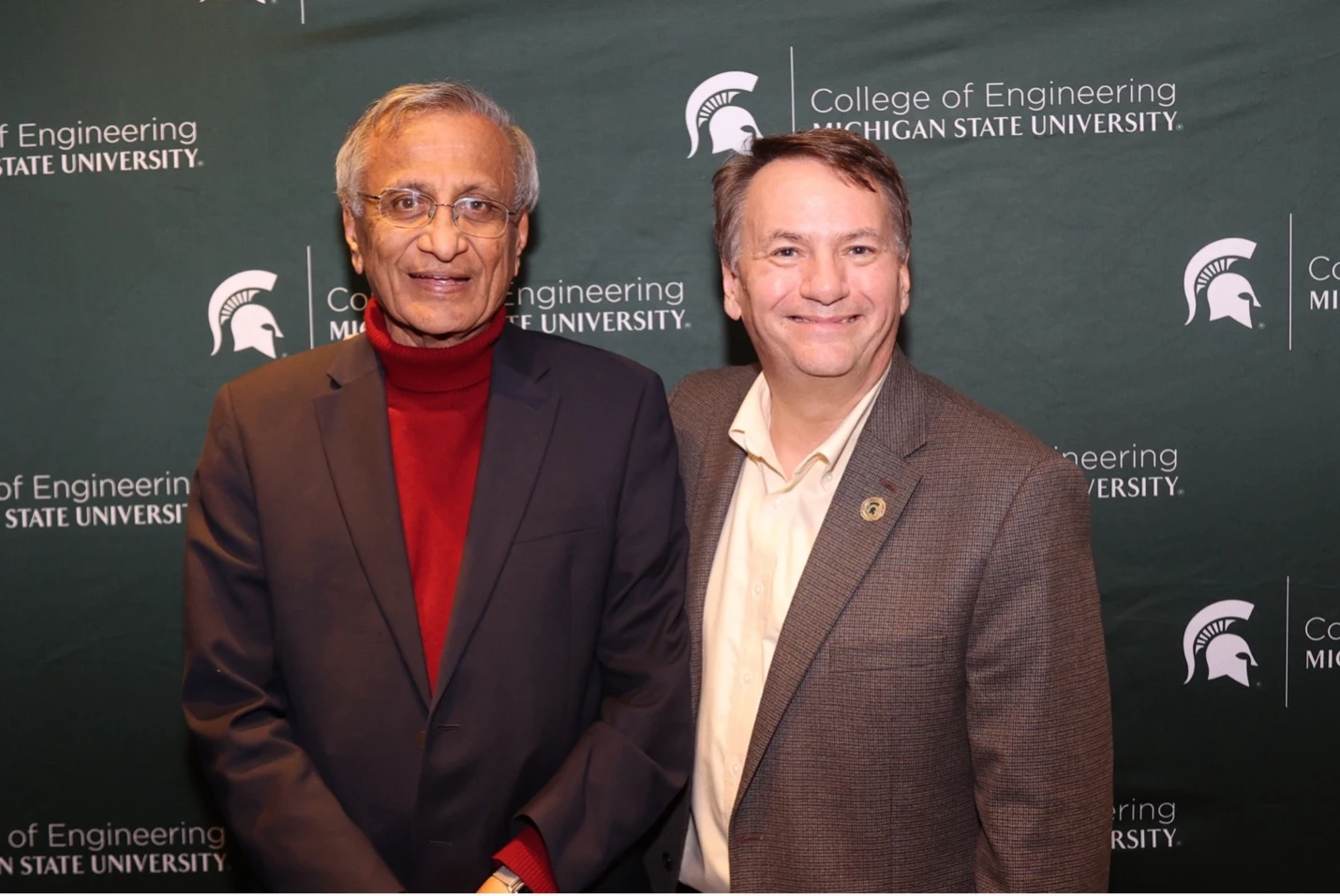Michigan State University Dean Leo C. Kempel’s last day as dean in the College of Engineering will be Sept. 30, 2024, after more than a decade.

The move will allow the popular and well-respected dean to transition back to teaching and research in MSU’s Department of Electrical and Computer Engineering.
“We have been through a lot over the past 11 years, including a pandemic,” Kempel said, “yet the college continued to offer high-quality education to our students and served as an engine for workforce and economic development.”
Kempel, the Dennis P. Nyquist Endowed Professor of Electromagnetics, became MSU’s ninth dean of Engineering in 2014 after serving as Acting Dean since March 2013.
John Papapolymerou will serve as interim dean, effective Oct. 1. He is an MSU Foundation Professor and director of the MSU Space Electronics Initiative. He served as chairperson of the Department of Electrical and Computer Engineering (ECE) for nine years.
His specialty is winning – Dean’s highlights

Kempel is quick to credit the Spartan Engineering community for the college’s successes during his tenure.
“This has been an incredible journey fueled by so many dedicated colleagues,” Kempel noted.
Under Kempel’s leadership, the number of faculty members expanded from 204 to 300 and student enrollment now tops 7,000, up from 4,500. Today’s College of Engineering graduates 1,450 engineers and computer scientists each year, with an average starting salary of $76,806 as of 2023.
Research, teaching, and innovation generated high-impact advancements that fueled progress across the State of Michigan, region, nation, and globe. College research expenditures grew to $62.5 million in 2022-23 in emerging areas related to artificial intelligence, health science, advanced manufacturing, materials science, and others.
Kempel supported continuity and academic excellence in the Departments of Biosystems and Agricultural Engineering, Civil and Environmental Engineering, Chemical Engineering and Materials Science, Computer Science and Engineering, Electrical and Computer Engineering and Mechanical Engineering – and one program, Applied Engineering Sciences – and was instrumental in the founding of two departments: Biomedical Engineering and Computational Mathematics, Science, and Engineering (joint with the College of Natural Science).
He also helped position the Spartan Engineering community for the future with a new undergraduate degree program, Technology Engineering, and planning for the design and construction of an Engineering and Digital Innovation Center.

Engineering Teams are bound to win – Broadening participation
“Especially gratifying is our growing number of women students, which is due to the hard work of many and guided by Engineering Inclusion and Diversity,” Kempel noted. “The college appointed its first associate dean for inclusion and diversity in 2018.”
Associate Dean of Inclusion and Diversity Tammy Reid Bush said Kempel has been actively engaged in initiatives to broaden participation, increase inclusion, and establish resources for diverse populations of students, faculty and staff across the college.
“Under his leadership, we expanded outreach with K-12 students and their families to raise awareness about engineering,” she said.
“We also obtained funding to establish resources for many student populations, including those who are the first in their families to attend college, come from LGBTQIA2S+ communities, have served in the military or are military-connected, and traditionally identified as underrepresented engineering students, including women.” she added.
Watch the points keep growing - Significant fundraising

“During the Kempel years, our faculty numbers grew in part by 22 new planned or funded endowed professorships and chair positions,” said Mike Wallace, senior director of Development and Alumni Relations in the College of Engineering.
“Nearly 3,000 gifts per year fueled more than $150 million in total dollars raised for the college – a testament to Spartans Will among MSU engineering graduates, corporate and foundation partners, and friends,” he added. “Kempel’s example of leadership has also inspired both faculty and staff to promote this kind of collaborative spirit on behalf of the college and our students.”
In addition to the critical support for endowed professorships and chair positions, new endowed and expendable scholarships were created, and innovative and inspiring student spaces were built.
Kempel oversaw the planning and design for The William A. Demmer Engineering Center which opened to engineering students in the Fall of 2022, and he positioned the College for future growth and adaptability as planning for the Engineering and Digital Innovation Center accelerates. The new building will support an increase in enrollment of new undergraduate students in computational sciences and digital literacy disciplines and in graduate related programs; prepare MSU graduates with skills in computational sciences and digital literacy necessary for postgraduate success; and become MSU’s center for excellence in advanced manufacturing, materials science, and quantum computing including heterogeneous micro-electronic technologies among others.
He’s working with a vim - About Leo C. Kempel
Kempel’s research interests include conformal antennas, engineered materials for microwave applications, and computational electromagnetics. He is a Fellow of the American Association for the Advancement of Science, the Institute of Electrical and Electronics Engineers, the Applied Computational Electromagnetics Society, and the Engineering Society of Detroit. He is a member of Tau Beta Pi, Eta Kappa Nu, and Commission B of the International Union of Radio Science (URSI). He is also a member of the Department of the Air Force Scientific Advisory Board.
Among Kempel’s other honors are the 2023 Robert F. Banks Award for Institutional Leadership for advancing MSU’s commitment to connectivity, quality, and inclusion and the 2024 ECE Alumni Distinguished Educator Award by Electrical and Computer Engineering at the University of Michigan.
A faculty member in the Department of Electrical and Computer Engineering since 1998, Kempel served as the inaugural director of the MSU High Performance Computing Center from 2004 to 2006, associate dean for special initiatives from 2006 to 2008, and associate dean for research from 2008 to 2013. He pursued electrical engineering studies and received a bachelor’s degree from the University of Cincinnati in 1989, a master’s degree from the University of Michigan in 1990, and a Ph.D. from the University of Michigan in 1994.
Victory for MSU
Kempel said his decision to step away from the college’s leadership role was not an easy one.
“This is a special place. We should be incredibly proud of all we have accomplished together and excited that our best days are ahead of us,” he added.
Written by Patricia Mroczek.
MSU College of Engineering Media and Public Relations page

